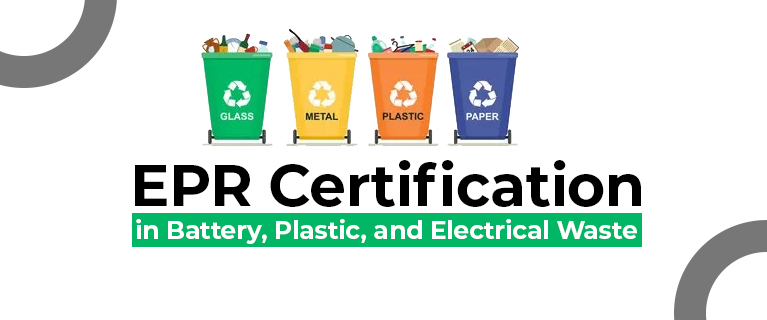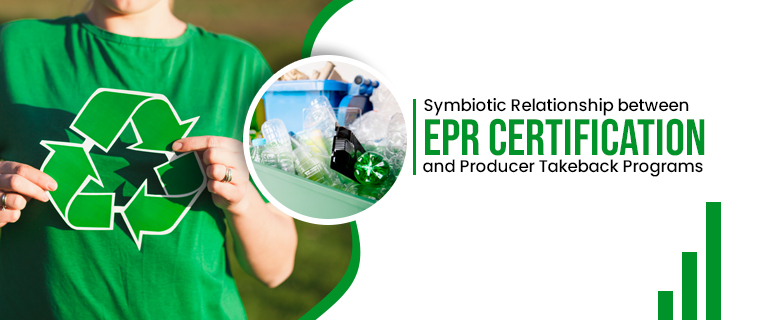EPR certification in Battery, Plastic, and Electrical Waste
In an era marked by heightened environmental awareness, the concept of Extended Producer Responsibility (EPR) has gained significant traction. EPR certification serves as a testament to an organization's commitment to managing various types of waste responsibly. In this blog, we'll delve into EPR certification specific to battery waste, plastic waste, and electrical waste, examining their importance, requirements, and impact.
1. Battery Waste EPR Certification:
Battery waste poses unique environmental challenges due to the presence of hazardous materials such as lead, cadmium, and mercury. EPR certification in battery waste management focuses on ensuring the safe collection, recycling, and disposal of used batteries. These certification typically require compliance with regulations governing battery recycling, as well as adherence to best practices for handling hazardous materials and preventing environmental contamination. Achieving certification demonstrates a producer's commitment to mitigating the environmental and health risks associated with battery waste.
Read also this-:What is the use of EPR Certificate in Imports2. Plastic Waste EPR Certification:
With the global plastic pollution crisis garnering increased attention, EPR certification in plastic waste management has become essential for organizations across industries. These certifications emphasize strategies for reducing plastic usage, promoting recycling and reuse, and minimizing the environmental impact of plastic products throughout their lifecycle. Requirements for plastic waste EPR certification often include measures to improve product design for recyclability, implement effective collection and sorting systems, and support the development of plastic recycling infrastructure. By obtaining certification, producers demonstrate their dedication to addressing the challenges posed by plastic pollution and advancing the circular economy.
3. Electrical Waste EPR Certification:
Electrical and electronic waste, commonly referred to as e-waste, presents complex challenges due to its diverse composition and rapid proliferation. EPR certification in electrical waste management focuses on ensuring the responsible handling, recycling, and disposal of electronic products at the end of their life cycle. These certifications typically encompass compliance with regulations governing e-waste recycling, as well as measures to protect data security, prevent the illegal export of e-waste, and promote the sustainable recovery of valuable materials. By obtaining certification, producers signal their commitment to managing e-waste in an environmentally sound and socially responsible manner, contributing to resource conservation and pollution prevention.
1. Battery Waste EPR Certification:
2. Plastic Waste EPR Certification:
3. Electrical Waste EPR Certification:
Each type of EPR certification offers a range of benefits, from environmental protection and resource conservation to legal compliance and corporate reputation enhancement. By pursuing certification in battery waste, plastic waste, or electrical waste management, producers not only fulfill their obligations but also contribute to the collective effort towards a more sustainable and resilient future.
To sum up, EPR certification plays a vital role in promoting responsible waste management practices across various sectors. Whether it's battery waste, plastic waste, or electrical waste, each type of certification reflects a producer's dedication to minimizing environmental impact, conserving resources, and safeguarding public health. By pursuing EPR certification, organizations not only fulfill their regulatory obligations but also demonstrate leadership in addressing pressing environmental challenges and advancing sustainability goals. Together, we can work towards a future where waste is managed responsibly, and our planet thrives for generations to come.




Comments
Post a Comment